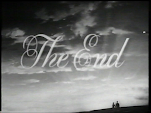relegating to "significance" all of the indefinitely extendable interpretations that works might be given by individuals or societies pursuing their own interests unchecked by intentions. (1974: 19)This captures well for me a distinction between instances of critical writing (especially those attempting to make value-claims) that I think are worthwhile or convincing, and those that I might find diverting, but finally consider insubstantial, or indulgent, or at least unconvincing-as-criticism.* If it is to constitute an attempt to grasp a text's meaning, rather than its significance, I think that an interpretation must appear to find some justification in what we can reasonably hypothesise are the text's intentions. While it will forever remain true that even the best hypotheses may turn out to be wrong, I would suggest that it nevertheless remains the critic's responsibility to attempt - in the first instance - this best hypothesis as far as is possible. Of course, one needn't stop there, and there are many reasons why we may often want to take into account significance as well as meaning; nonetheless, one also probably shouldn't start anywhere else.
*That is to say: while it strikes me as uninteresting as criticism, it may seem useful and convincing as an example of something else: political/media critique or philosophy, for instance, or simply a record of how an interesting writer's analytical mind works.
